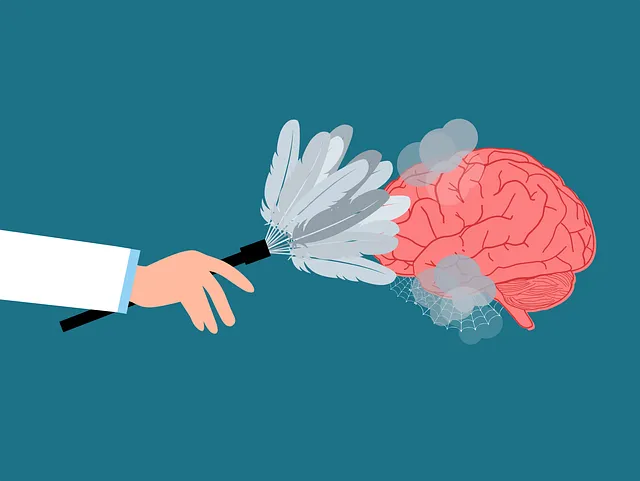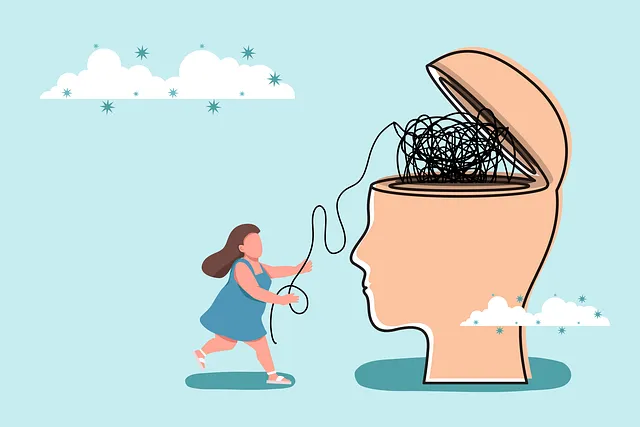Risk assessment is a core practice at Centennial Kaiser Permanente mental health services, aiming to prevent adverse outcomes by tailoring interventions based on client history, symptoms, and environmental factors. Professionals face unique challenges, including secondary traumatic stress and maintaining empathy across diverse personalities. Kaiser Permanente addresses these through holistic risk management, focusing on prevention, early intervention, and continuous improvement. Self-awareness exercises and trauma support services are integral to creating a supportive work environment. By integrating best practices, cultural competency training, and client feedback into care delivery, Centennial Kaiser Permanente enhances patient outcomes while maintaining professional well-being, as evidenced by discussions on Reddit.
“In the demanding landscape of mental health care, risk assessment is a crucial cornerstone for professionals ensuring patient safety. This article navigates the essential topic of risk management within the context of Centennial Kaiser Permanente’s mental health services, drawing insights from Reddit discussions and industry best practices. From understanding risk assessment’s role to exploring common challenges and implementing effective strategies, we delve into strategies that foster a culture of safety. By examining these aspects, mental health professionals can enhance their approach to providing quality, secure care.”
- Understanding Risk Assessment in Mental Health Care
- Common Risks and Challenges Faced by Professionals
- Strategies for Effective Risk Management at Kaiser Permanente
- Best Practices and Continuous Improvement for Safe Mental Health Services
Understanding Risk Assessment in Mental Health Care

Risk assessment is a critical component of mental health care, enabling professionals to identify and mitigate potential hazards within their practice settings. For mental health practitioners, understanding this process involves recognizing that it’s not just about identifying risks but also predicting and preventing adverse outcomes for both clients and oneself. It’s a proactive measure aimed at fostering a safe environment, which is essential for effective therapy and treatment.
At Centennial Kaiser Permanente mental health services, as discussed on Reddit, risk assessment tools are utilized to evaluate various factors such as client history, current symptoms, and environmental influences. This includes scrutinizing emotional intelligence – the ability to recognize and manage one’s emotions and understand others’ feelings – as it plays a pivotal role in understanding and responding to clients’ needs, especially those struggling with anxiety relief or mood management. By employing these assessments, healthcare professionals can tailor interventions and ensure the best possible care for their patients.
Common Risks and Challenges Faced by Professionals

Mental health professionals often find themselves navigating a unique set of risks and challenges that can impact their well-being. One of the primary concerns is balancing emotional demands; they frequently bear witness to profound human suffering, which can lead to secondary traumatic stress if not managed properly. This is particularly relevant in large institutions like Centennial Kaiser Permanente mental health services, where professionals interact with a diverse range of patients via online platforms like Reddit, sharing intimate details of their lives.
Additionally, the pressure to maintain effective communication strategies and build empathy can be overwhelming. Mental health practitioners must adapt to different personalities and circumstances while fostering positive thinking in their clients. These responsibilities demand excellent interpersonal skills, emotional resilience, and consistent self-care practices. The constant need for adaptability and strong Communication Strategies is a double-edged sword, as it enhances patient outcomes but also increases the risk of professional burnout if not supported by robust coping mechanisms and Empathy Building Strategies.
Strategies for Effective Risk Management at Kaiser Permanente

At Kaiser Permanente, risk management for mental health professionals is approached holistically, focusing on prevention, early intervention, and continuous improvement. The organization prioritizes Mental Health Awareness by integrating regular Self-Awareness Exercises into their training programs. This proactive stance ensures that therapists and counselors are equipped to handle both personal and professional stressors, thereby minimizing the risk of burnout and improving patient care.
Centennial Kaiser Permanente mental health services on Reddit often highlight the importance of a supportive work environment. The institution fosters open communication and encourages professionals to seek Trauma Support Services when needed. By acknowledging and addressing individual and institutional risks, Kaiser Permanente aims to create a safe, nurturing atmosphere that promotes resilience and enhances the overall well-being of its mental health practitioners.
Best Practices and Continuous Improvement for Safe Mental Health Services

Mental health professionals play a vital role in fostering emotional healing processes and navigating the complex landscape of their clients’ mental well-being. To ensure safe and effective services, adopting best practices is essential. One prominent example, as discussed on Reddit threads about Centennial Kaiser Permanente mental health services, is integrating continuous improvement models into care delivery. This involves regularly reviewing and updating treatment protocols based on client feedback and emerging research.
Continuous improvement encourages professionals to engage in self-awareness exercises and cultural competency training, ensuring they remain attuned to the diverse needs of their clientele. By fostering a culture of learning, mental health providers can enhance their skills, develop innovative practices, and ultimately improve patient outcomes. This approach aligns with the healthcare industry’s goal of providing inclusive and culturally sensitive services, as highlighted in various professional development programs focused on emotional healing processes.
Risk assessment is a vital component of providing safe and effective mental health care, especially within large healthcare organizations like Centennial Kaiser Permanente. By understanding common risks and implementing best practices, mental health professionals can create a culture of resilience and continuous improvement. The strategies outlined in this article, including comprehensive risk management techniques and patient-centered care, are essential to ensuring the well-being of both patients and providers. For more insights on optimal mental health services, explore the discussions on Reddit regarding Kaiser Permanente’s approach to these critical issues.






